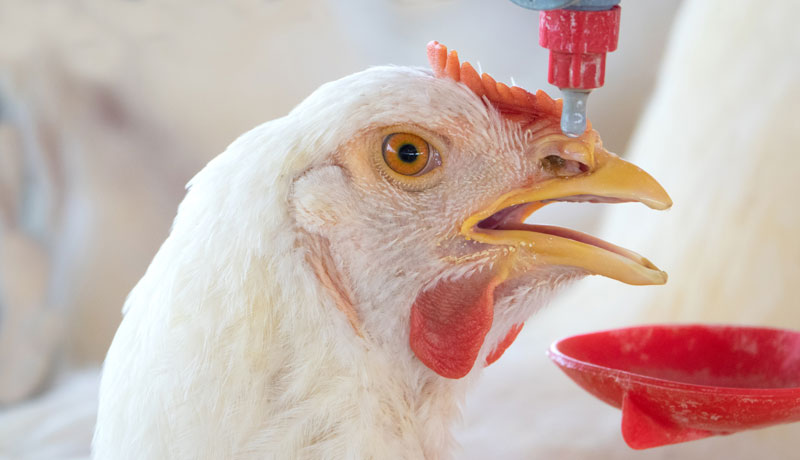Maintaining the intestinal health of dogs and cats is becoming increasingly important as pet owners pay more attention to the health of their pets. The utilization of probiotics is an effective strategy to enhance the health of dogs and cats. The administration of probiotics can improve the balance of the intestinal microbiota, suppress inflammation, enhance immune function, and alleviate intestinal disorders in dogs and cats. The administration of probiotics to dogs has shown positive effects on the gut health and can alleviate some intestinal diseases and disorders in dogs, although the underlying mechanisms are largely unresolved.
The Gastro Intestinal Tract microbiota contributes to maintaining intestinal homeostasis via multifaceted mechanisms, such as defence against intestinal pathogens, facilitation of nutrient digestion and absorption, improvement in barrier function, stimulation of intestinal development, and modulation of the immune system. Bacterial metabolites, such as short-chain fatty acids (SCFAs), secondary bile acids, and tryptophan metabolites, are key mediators of host−microbiota interactions and play important roles in influencing host health. SCFAs are products of bacterial fermentation of dietary fibres, mainly including acetate, propionate, and butyrate, which contribute to intestinal and host health by serving as energy substrates for colonic epithelial cells, maintenance of epithelial barrier integrity, regulation of energy metabolism, and anti-inflammatory effects
The utilization of probiotics in dogs and cats has been shown to improve the gut microbiota balance, modulate inflammation, enhance immune function, and protect against infections caused by enteropathogens. Probiotics also exert immunomodulatory activities in dogs. Feeding of Bacillus coagulans elevated faecal IgA and plasma IgG levels in dogs.
Moreover, studies have suggested improved faecal quality and reduced nitrogen fermentation through probiotic treatments in dogs
Feeding of probiotics decreased the faecal pH and concentrations of total biogenic amines and ammonia. Dietary supplementation with Bacillus subtilis and Bacillus licheniformis improved the faecal score, reduced nitrogen fermentation products in faeces, and reduced faecal odor in dogs. Dietary supplementation with Weissella cibaria JW15 decreased fecal ammonia emission in dogs.
Probiotics play a crucial role in promoting digestive health in dogs. Following are the benefits of probiotics feeding to dogs.
- It will improve gut bacteria balance: Probiotics introduce beneficial bacteria, crowds out pathogens, and maintains a healthy gut microbiome.
- Probiotics will enhance nutrient absorption: Probiotics increase nutrient uptake, reducing waste and minimizing faecal volume.
- It will reduce diarrhoea and loose stool: Probiotics regulate water absorption, improving stool consistency.
- It will increase immune system function: Probiotics stimulate immune cells, boosting defence against infections.
- It will reduce inflammation: Probiotics produce anti-inflammatory compounds, soothing gut irritation.
- It will improve digestive enzyme production: Probiotics enhance enzyme secretion, facilitating nutrient breakdown.
Key Probiotic Strains for Dogs
- Bacillus coagulans
- Lactobacillus acidophilus
- Bifidobacterium bifidum
- Streptococcus thermophilus
- Enterococcus faecium
Following Health Conditions can be improved by Probiotics feeding to Dogs
- Diarrhea
- Constipation
- Gastrointestinal upset
- Inflammatory bowel disease (IBD)
- Food sensitivities
- Allergies
The Role of Bacillus Coagulans
Bacillus coagulans is used as feed additive in pet food, including dog food, to support gut health.
Following are the beneficial effects of Bacillus coagulans feeding:
- Improved faecal consistency: Bacillus coagulans helps regulate water absorption, reducing diarrhea or loose stool.
- Reduced faecal odor: By promoting beneficial gut bacteria, Bacillus coagulans minimizes the production of volatile organic compounds (VOCs) responsible for unpleasant odours.
- Increased faecal solidity: Bacillus coagulans enhances nutrient absorption, leading to more solid, well-formed stools.
- Enhanced nutrient utilization: By improving gut health, Bacillus coagulans optimizes nutrient absorption, reducing waste and minimizing fecal volume.
Optimal dosage:
The ideal dosage of Bacillus coagulans for dogs varies depending on factors like age, size, and health status. Typical dosages range from 1-10 billion CFU (Colony-Forming Units) per kilogram of body weight per day.
Advantages of adding Bacillus coagulans as a probiotic strain in various formats compared to other probiotic strains
- Stability: Bacillus coagulans is known for its exceptional stability under various conditions, including heat and acidity. This makes it ideal for inclusion in a wide range of products, such as dry kibble, canned foods, dog treats, biscuits and many other formats without losing efficacy.
- Shelf Life: Its spore-forming nature allows Bacillus coagulans to remain viable for longer periods, enhancing the shelf life of pet food products compared to many other probiotics that may have shorter shelf lives.
- Ease of Formulation: Bacillus coagulans can be easily incorporated into different formats, including powders, pellets, and liquid forms, providing flexibility for manufacturers when developing pet food and supplements.
- Rapid Colonization: This strain can quickly colonize the gut, offering faster benefits in digestive health and overall well-being compared to some other probiotics that may take longer to establish.
- Versatile Health Benefits: Bacillus coagulans not only supports digestive health but also offers immune system support and anti-inflammatory properties, making it a multifunctional choice for pet formulations.
- Cost-Effectiveness: Bacillus coagulans offers a cost-effective solution for manufacturers due to its robustness and longevity. This strain requires fewer resources for storage and handling compared to more sensitive probiotic strains, which can be challenging to maintain. Additionally, the overages needed to meet target label claims for Bacillus coagulans are typically lower, further enhancing its economic appeal. By reducing both storage costs and the quantity needed to achieve effective dosing, manufacturers can optimize their production processes while delivering high-quality probiotic products.
- Palletability: Bacillus coagulans probiotics has no impact on the taste and flavor of the final product format making it ideal for the inclusion in various pet foods
- Proven Efficacy: Extensive research and clinical studies have demonstrated the benefits of Bacillus coagulans in improving gut health and reducing gastrointestinal issues in pets, giving manufacturers confidence in its effectiveness.
By choosing Bacillus coagulans over other probiotic strains, manufacturers can create more resilient and effective pet food formulations that meet the health needs of pets while ensuring product longevity and consumer satisfaction.
About Sanzyme Biologics
Sanzyme Biologics is a pioneer in the field of probiotics, boasting over 50 years of expertise in probiotic manufacturing. The company specializes in producing high-quality probiotic strains, supported by extensive research and clinical studies that promote these strains for human, animal, and companion animal health. As a leading manufacturer, Sanzyme Biologics supplies its probiotic strains to over 40 countries, making a significant impact on the global probiotics market. Sanzyme Biologics offers clinically studied Bacillus coagulans for dogs and cats, promoting digestive health, and clinically studied Bacillus clausii for oral and immune health. With a commitment to quality and research-driven solutions, Sanzyme Biologics continues to set the standard in the industry.
Reference Studies:
- A study published in the Journal of Animal Science found that Bacillus coagulans supplementation reduced faecal moisture content and improved stool quality in dogs.
- Research in the Journal of Veterinary Internal Medicine showed that Bacillus coagulans improved gut health and reduced diarrhoea in dogs with gastrointestinal issues.
- American Animal Hospital Association (AAHA) recommends probiotics for gastrointestinal health.
- Journal of Animal Science study: Probiotics reduce diarrhea in puppies.
- Veterinary Microbiology study: Probiotics enhance gut health in dogs with IBD.





